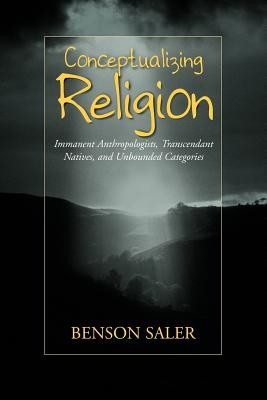
- We will send in 10–14 business days.
- Author: Benson Saler
- Publisher: Berghahn Books
- ISBN-10: 1571812199
- ISBN-13: 9781571812193
- Format: 15.2 x 22.9 x 1.7 cm, softcover
- Language: English
- SAVE -10% with code: EXTRA
Reviews
Description
How might we transform a folk category - in this case religion - into a analytical category suitable for cross-cultural research? In this volume, the author addresses that question. He critically explores various approaches to the problem of conceptualizing religion, particularly with respect to certain disciplinary interests of anthropologists. He argues that the concept of family resemblances, as that concept has been refined and extended in prototype theory in the contemporary cognitive sciences, is the most plausible analytical strategy for resolving the central problem of the book. In the solution proposed, religion is conceptualized as an affair of "more or less" rather than a matter of "yes or no," and no sharp line is drawn between religion and non-religion.
EXTRA 10 % discount with code: EXTRA
The promotion ends in 20d.17:58:46
The discount code is valid when purchasing from 10 €. Discounts do not stack.
- Author: Benson Saler
- Publisher: Berghahn Books
- ISBN-10: 1571812199
- ISBN-13: 9781571812193
- Format: 15.2 x 22.9 x 1.7 cm, softcover
- Language: English English
How might we transform a folk category - in this case religion - into a analytical category suitable for cross-cultural research? In this volume, the author addresses that question. He critically explores various approaches to the problem of conceptualizing religion, particularly with respect to certain disciplinary interests of anthropologists. He argues that the concept of family resemblances, as that concept has been refined and extended in prototype theory in the contemporary cognitive sciences, is the most plausible analytical strategy for resolving the central problem of the book. In the solution proposed, religion is conceptualized as an affair of "more or less" rather than a matter of "yes or no," and no sharp line is drawn between religion and non-religion.


Reviews